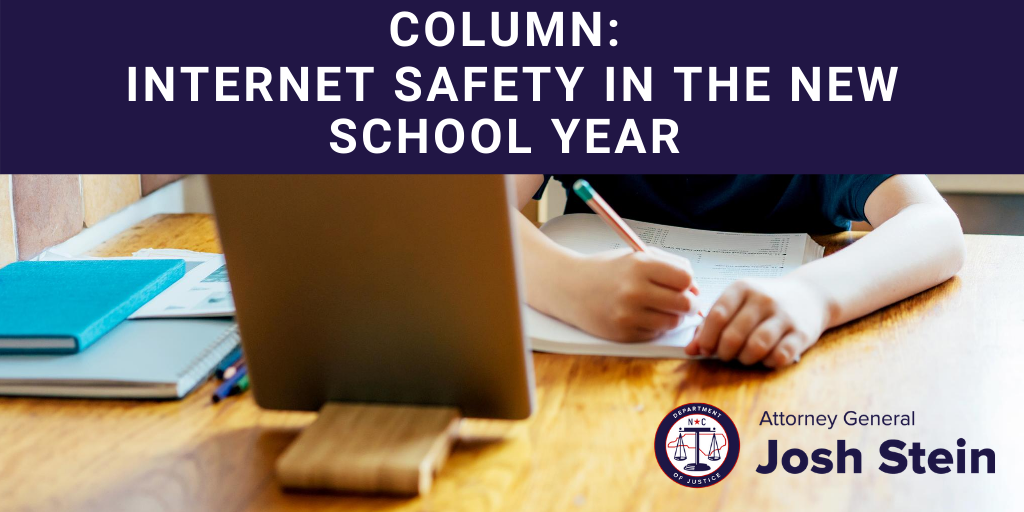
Attorney General Josh Stein
August 2020
It’s back-to-school time, but everything looks quite a bit different this year. If your kids are like mine, they have probably already been spending more time online this summer, but with most schools implementing various distance learning tools, their online time will only increase. That makes it all the more important that parents know how to keep their children and teenagers safe online. Below are some ways to make sure your children are using the internet safely as they begin a new year of learning.
The best way we can keep our kids safe is to have an open dialogue about the importance of online privacy and the risks of sharing personal information online. Encourage your children to think twice before they add “friends” or build relationships online – especially if they do not know these people in real life. Discuss and set good standards for online behavior, including being respectful, not bullying, and never sending explicit content to others. Place computers in a common area of the home, and discuss rules about password-sharing, monitoring, and access to cellphones and other electronic devices, as well as online accounts.
Review the safety measures in place on sites your child is likely to visit. Take time to evaluate the privacy settings on social media platforms, and make sure you are comfortable with the information that social media companies and advertisers may be able to access and use. Your internet service provider may have free parental controls that you can download and activate so your child doesn’t access potentially harmful content.
Last year, my office drafted and championed the SAFE Child Act, which became law in November 2019. The law prohibits high-risk sex offenders from contacting anyone under the age of 16 using social media or social networking sites, gathering information about anyone under the age of 16, and violating social media platform policies. It is also a violation of federal law to knowingly send or attempt to send obscene material to a minor under the age of 16. You can report concerns to law enforcement or the National Center for Missing and Exploited Children’s CyberTipline – www.cybertipline.org or 1-800-843-5678.
This is a challenging time for us all, but not being able to attend school and connect with friends and classmates presents additional challenges for young people, who rely on these interactions with their peers to learn and grow. Keep an eye out for changes in behavior in your children that may indicate they are struggling to adapt or experiencing mental health challenges. If you’re worried about your child, please call the National Suicide Prevention Lifeline at www.suicidepreventionlifeline.org or 1-800-273-8255.
Keeping our children safe is job one for both parents and the state. The online world can be unpredictable and overwhelming if your child is not vigilant about keeping their information private and their social circle limited to people they know in real life. As parents and caretakers, it’s on us to make sure we protect our kids from harm online. That will be even more important this year. Best wishes for a happy and successful school year.
